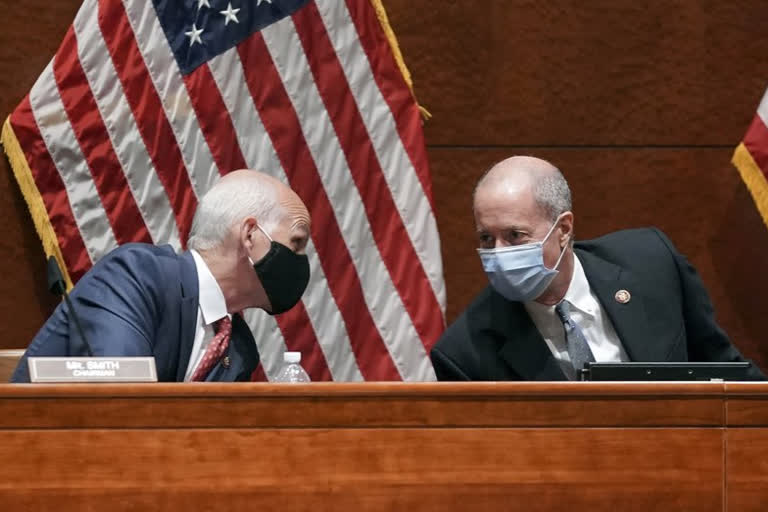Washington:The Democratic-controlled House on Tuesday easily approved a wide-ranging defence policy bill, defying a veto threat from President Donald Trump and setting up a possible showdown with the Republican president in the waning days of his administration.
The 335-78 vote in favour of the $731 billion defence measure came hours after Trump renewed his threat to veto the bill unless lawmakers clamp down on social media companies he claims were biased against him during the election.
Trump tweeted Tuesday that he will veto “the very weak National Defense Authorization Act,″ or NDAA, unless it repeals so-called Section 230, a part of the communications code that shields Twitter, Facebook and other tech giants from content liability. Trump also wants Congress to strip out a provision of the bill that allows renaming of military bases that now honour Confederate leaders.
The final vote represented approval from more than 80% of the House — well above the two-thirds support required to override a potential veto. A total of 140 Republicans joined 195 Democrats to back the bill, which now goes to the Senate.
Wyoming Rep. Liz Cheney, a member of the House Republican leadership, urged Trump not to follow through on his veto threat but added that if he does veto it, “We should override.″
If Trump vetoes the bill, “we will come back to vote to override,” said Rep. Adam Smith, D-Wash., the chairman of the House Armed Services Committee.
Read:|COVID-19 vaccine: Biden vows 100 million shots in first 100 days
But with Trump pressuring Republicans to stand with him, it was unclear until the final tally whether the bill would receive the two-thirds support needed to override a veto. The House Freedom Caucus, a bloc of roughly three-dozen conservatives, backed Trump’s position Tuesday and opposed the bill.
“We stand with the president,″ said Rep. Andy Biggs, R-Ariz., the group’s chairman. “This particular NDAA bill is filled with flaws and problems,″ including limitations on troop withdrawals ordered by Trump in Afghanistan and Germany, Biggs said.
Smith and other lawmakers noted that many defence programs can only go into effect if the bill is approved, including military construction. The measure guides Pentagon policy and cement decisions about troop levels, new weapons systems and military readiness, military personnel policy and other military goals.
Troops should not be “punished” because politicians failed to enact needed legislation to ensure their pay, said Rep. Mac Thornberry of Texas, the top Republican on the Armed Services panel. The $731 billion measure increases hazardous duty pay for overseas deployments and other dangerous job assignments, hikes recruiting and retention bonuses and adjusts housing allowances.
The dispute over social media content — a battle cry of conservatives who say the social media giants treat them unfairly — interjects an unrelated but complicated issue into a bill that Congress takes pride in having passed unfailingly for nearly 60 years. It follows Trump’s bid to sabotage the package with an earlier veto threat over Confederate base names.
Read:|WH adviser Peter Navarro accused of violating Hatch Act
Measures approved by the House and Senate would require the Pentagon to rename bases such as Fort Benning and Fort Hood named for Confederate generals, but Trump opposes the idea and has threatened a veto over it. The fight erupted this summer amid widespread protests over police killings of unarmed Black men and women, and Trump used the debate to try to appeal to white Southern voters nostalgic about the Confederacy.
